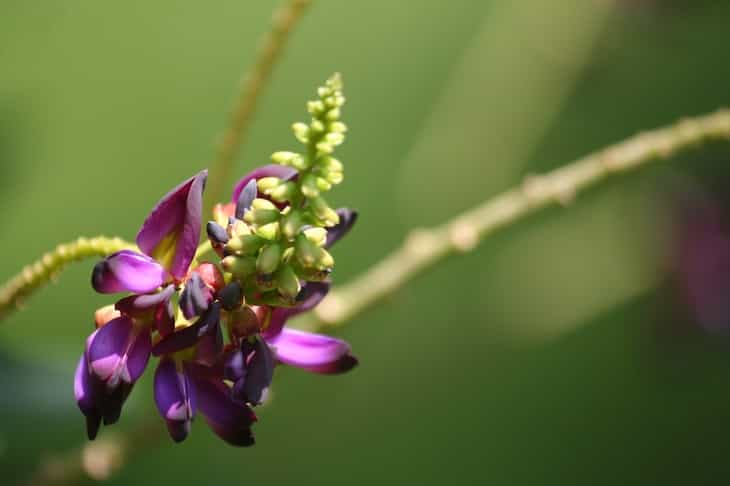While some plants require lots of effort and time to survive, other plants are extremely invasive and resilient.
If you don't take good care of them, they can conquer your garden and take as much space as they can.
Here are a few examples of such plants.

Mint
Mint plants grow fast and send out runners, which quickly spread and take over the garden.
It's best to plant mint in containers to prevent it from spreading uncontrollably.
Japanese Knotweed
This plant has strong roots that can damage buildings and other structures.
It grows rapidly and can be difficult to control once established.
Bamboo
Although bamboo can add a nice touch to a garden, certain types can spread aggressively and become difficult to remove.
It's important to choose clumping varieties rather than running types if you want to avoid invasive growth.
English Ivy
While it may look attractive, English ivy can quickly overtake trees, fences, and other plants.
It climbs and spreads easily, making it challenging to remove once it takes hold.
Purple Loosestrife
This plant produces beautiful purple flowers, but it can quickly take over wetlands and other moist areas.
It competes with native plants and can disrupt the balance of the ecosystem.
Kudzu
Known as "the vine that ate the South" in the United States, kudzu grows rapidly and covers everything in its path.
It can smother and kill other plants, causing significant damage to natural habitats.
Japanese Barberry
This shrub has thorny branches and can spread fast, crowding out native plants.
It can also serve as a host for ticks, which can transmit diseases.
Chinese Wisteria
While wisteria can be stunning when in bloom, the Chinese wisteria variety is highly invasive.
It can quickly overtake trees and structures, causing damage and displacing native plants.
Previously, we talked about growing hazel.












